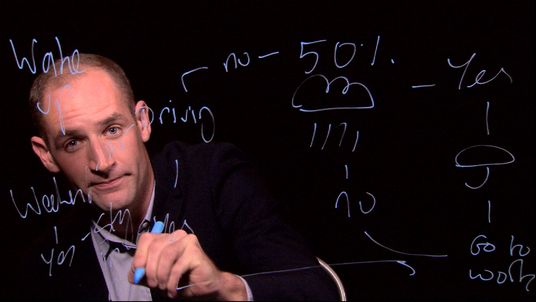Professor Edward Tsang, director of the Centre for Computational Finance and Economic Agents at the University of Essex, said that algorithms should at least be "test-driven" by regulators to prevent "trillions" of pounds being lost and the global economy being wiped out.
At their most basic, algorithms are a set of rules that computers follow to make decisions. But they can be extremely complex and opaque, even to their creators.
Automated financial trading algorithms have led to rapid falls in stock markets - most notably in 2010 when a trillion dollars was wiped off indexes - and in the value of sterling following the EU referendum when the pound fell by 6% in a matter of minutes.
Companies such as Google and Facebook also use complex algorithms to organise the world's information.
Their systems use thousands of data points applied to billions of posts and web pages, but this has recently led to controversies over fake news.

The European Council is planning to introduce rules to force companies to open up their algorithms for inspection.
German Chancellor Angela Merkel has called for greater transparency, and has said: "Algorithms, when they are not transparent, can lead to a distortion of our perception, they can shrink our expanse of information."
Prof Tsang is developing an early warning system to spot future flash crashes.
He told Sky News: "I think there will be more flash crashes. I think that will become the norm.
"If we don't insist that they reveal their algorithms, we could still test drive them just like we do for cars. Before you allow them to go on the road.
"When they go wrong - like the recent flash crash - they are losing millions, billions trillions of dollars. They could wipe out the economy."
Algorithms have applications in every field.
Since July 2008, the NHS has worked with computer scientists at the University of Glasgow to develop a kidney matching scheme.
One patient, Claire Heathcote, urgently needed a new kidney. Her sister-in-law was willing to donate but wasn't a match.
The algorithm was able to search potential combinations across the whole of the UK and come up with a complicated kidney swapping scheme involving several people.
Ms Heathcote told Sky News: "It just changes people's lives. It's incredible."
This kidney-swapping algorithm is transparency. It's a model that those lobbying for algorithmic accountability hope will be adopted elsewhere.
No comments:
Post a Comment